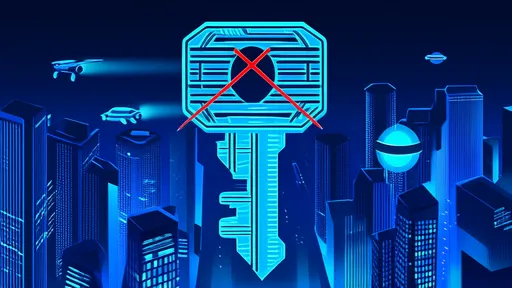The European Union is taking a bold step toward sustainable energy storage with its groundbreaking Battery Passport initiative. This ambitious regulation, set to transform the lithium-ion battery industry, introduces unprecedented transparency requirements for carbon footprint tracking across the entire battery lifecycle.
At the heart of this regulatory shift lies a simple yet revolutionary concept: every industrial and electric vehicle battery sold in the EU must carry a digital identity. This Battery Passport will contain detailed information about the battery's composition, manufacturing history, and crucially, its environmental impact from raw material extraction to end-of-life processing. The legislation forms part of the EU's broader strategy to establish a circular economy for batteries while meeting its climate neutrality goals.
Manufacturers now face the complex challenge of mapping their entire supply chains with carbon accounting precision never before required in the industry. The regulation demands disclosure of greenhouse gas emissions at each production stage, including mining, refining, cell production, and assembly. This level of traceability will fundamentally change how batteries are sourced, produced, and recycled in Europe.
The implementation timeline is aggressive, with the first phase taking effect in 2025 for industrial batteries above 2kWh. By 2027, the requirements will expand to cover most consumer electronics batteries. This compressed schedule has sent shockwaves through global supply chains, as non-EU manufacturers scramble to adapt their operations to maintain access to the lucrative European market.
What makes the Battery Passport particularly innovative is its digital infrastructure. Each battery will receive a unique QR code linking to an online database containing its full environmental profile. This system will enable regulators, recyclers, and even consumers to access verified sustainability data throughout the product's lifespan. The technical specifications for this digital framework are currently being finalized by the European Commission's Joint Research Centre.
Industry analysts predict this regulation will create ripple effects far beyond Europe's borders. Major battery producers in Asia and North America are already investing in carbon tracking systems to meet the EU standards, effectively making the Battery Passport a de facto global benchmark. The automotive sector, in particular, faces immense pressure as electric vehicle manufacturers race to secure low-carbon battery supplies.
The legislation also introduces strict requirements for recycled content in new batteries. Starting in 2030, all lithium-ion batteries must contain minimum percentages of recycled cobalt, lead, lithium, and nickel. This provision aims to create a closed-loop system where materials from retired batteries feed directly into new production, dramatically reducing the need for environmentally destructive mining operations.
Critics argue the regulation could temporarily increase battery costs during the transition period, potentially slowing EV adoption. However, EU policymakers counter that the long-term benefits - including reduced reliance on imported critical minerals and lower lifecycle emissions - justify the short-term economic pain. Several member states are preparing subsidy programs to help manufacturers offset compliance costs.
Environmental groups have largely praised the initiative, though some express concerns about enforcement mechanisms. The success of the Battery Passport system hinges on rigorous auditing of manufacturer-reported data and meaningful penalties for non-compliance. The European Environment Agency will play a crucial role in monitoring implementation across 27 member states.
As the 2025 deadline approaches, a new ecosystem of carbon accounting services and supply chain verification tools is emerging. Tech startups specializing in blockchain-based material tracking and AI-powered emissions calculations are finding eager clients among battery manufacturers. This ancillary market could become a significant economic sector in its own right.
The Battery Passport represents more than just another environmental regulation - it signals a fundamental shift in how industrial products will be designed, produced, and regulated in the climate-conscious 21st century. Other industries are watching closely, as similar passport systems for textiles, construction materials, and electronics may follow if the battery initiative proves successful.
For consumers, the changes will manifest as greater transparency about the environmental impact of their purchases. EV buyers, for instance, will be able to compare batteries not just by range and price, but by their verified carbon footprints. This information could significantly influence purchasing decisions as environmental awareness grows.
The global battery industry stands at a crossroads. Companies that successfully adapt to the EU's new paradigm may gain competitive advantage in an increasingly sustainability-focused marketplace. Those that fail to meet the standards risk being locked out of the world's second-largest economy. One thing is certain: the age of opaque, environmentally questionable battery production is coming to an end in Europe.

By /Jun 15, 2025

By /Jun 15, 2025

By /Jun 15, 2025

By /Jun 15, 2025

By /Jun 15, 2025

By /Jun 15, 2025

By /Jun 15, 2025

By /Jun 15, 2025

By /Jun 15, 2025

By /Jun 15, 2025

By /Jun 14, 2025

By /Jun 14, 2025

By /Jun 14, 2025

By /Jun 14, 2025

By /Jun 14, 2025

By /Jun 14, 2025

By /Jun 14, 2025